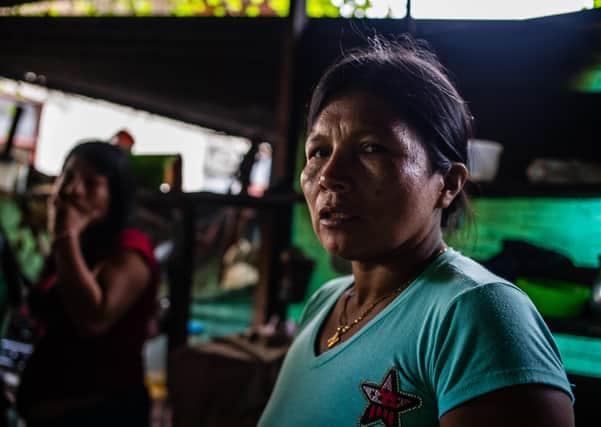As the world reels from coronavirus, Christian Aid there for most vulnerable


Across the world the poorest people don’t have access to robust healthcare or even to clean water and soap. The World Food Programme has warned that the pandemic could force more than a quarter of a billion people into acute food insecurity. In Nigeria, Bangladesh and the Dominican Republic, unreliable information about how the virus can spread is endangering lives. In Latin America, the implications of the lockdown will have serious consequences for human rights and personal safety.
Ashley’s motivation to carry on fundraising, mirrored in our supporters across the country, is a deep-rooted understanding that while coronavirus impacts us all in many different ways, love unites us all.
Advertisement
Hide AdAdvertisement
Hide AdAt a time when we couldn’t go anywhere, our supporters found ways to reach out to our global neighbours. They held virtual quizzes, sent e-envelopes to friends, opened JustGiving pages for congregations, groups and communities to donate online. There were “at home” sponsored challenges and so many amazingly creative and generous ideas – thank you! But as we live through one of the most challenging times in living memory, we must not forget that this pandemic, painful as it is for us, will be devastating for those already living in poverty,


From the outset, Christian Aid partners have been responding to the huge threat posed by coronavirus, adapting existing programme work and providing humanitarian support. Through our partners and local churches, we can often reach further into communities than others, making a life-saving impact where it counts.
In crowded refugee camps such as Cox’s Bazar in Bangladesh, the world’s largest refugee camp, where physical distancing is almost impossible, Christian Aid has been preparing doctors to deal with the virus, running awareness campaigns and hand-washing training sessions. We have ensured that health facilities in the camps have screening and isolation areas in order to treat suspected cases without spreading the virus further.
Across Latin America and the Caribbean the coronavirus is having a devastating effect on vulnerable communities. As we have seen in the UK, one of the less visible impacts of coronavirus has been a surge in gender-based violence. In Colombia, Guatemala, El Salvador and Haiti, Christian Aid partners are helping women at risk of increased rates of domestic violence during lockdown. We are providing online counselling to women who have survived sexual violence in Colombia and El Salvador. In El Salvador, we’ve provided survivors of domestic and sexual violence with protective masks and hand sanitiser. Similar work is happening in Guatemala, where lockdown has left many vulnerable women at further risk. Our partner there is also helping to transport women to refuges.
A recent Christian Aid report – Tipping Point: How the Covid-19 pandemic threatens to push the world’s poorest to the brink of survival – calls for action from governments at home and internationally. The report makes three key recommendations: to mobilise faith leaders as key actors within communities, to cancel the poorest countries’ unpayable debts and to safeguard existing humanitarian efforts. It urges leaders to find imaginative cross-border solutions which will prevent this crisis from becoming a catastrophe.
In the forward to the report, Gordon Brown says Christian Aid’s work is crucial at this time,
“As governments around the world struggle to find their way through the crisis, and multilateral organisations find it difficult to forge a coordinated global response, Christian Aid is filling a gap: its concern is for the most marginalised people living in extreme poverty and inequality, exacerbated by Covid-19. In providing health care, creating jobs, defending human rights and delivering humanitarian aid, Christian Aid is making a difference.”
Coronavirus impacts all of us, but love unites us all. Christian Aid will always find ways to stand, speak out and act together for a more equal world for everyone. Thanks to supporters like Ashley and thousands of others across Scotland we can reach out and protect more of our global neighbours today. It is not too late to give to Christian Aid Week 2020. Donate online at caweek.org or by phone on 020 7523 2046.
Sally Foster-Fulton, head of Christian Aid Scotland
Comments
Want to join the conversation? Please or to comment on this article.